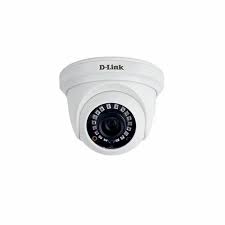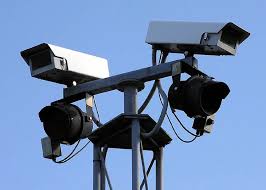Alarm: Ensuring Safety and Security
In today’s fast-paced world, safety and security have become paramount concerns for individuals and businesses alike. With the rise in crime rates and unforeseen emergencies, it is crucial to have effective measures in place to protect ourselves and our assets. One such measure that has proven to be highly effective is the alarm system.
An alarm system serves as a reliable deterrent against burglars, intruders, and other potential threats. It provides an instant alert when unauthorized access is detected, allowing for immediate action to be taken. Whether it’s a residential property or a commercial establishment, installing an alarm system offers peace of mind by creating a protective barrier.
There are various types of alarm systems available in the market today, catering to different needs and requirements. The most common type is the burglar alarm system. This system typically consists of sensors placed at entry points such as doors and windows. When these sensors detect any unusual activity or unauthorized access, they trigger a loud siren or send an alert to the designated authorities.
Apart from burglar alarms, there are also fire alarms that play a critical role in safeguarding lives and property against fire hazards. Fire alarms use smoke detectors or heat sensors to identify signs of fire at an early stage. Upon detection, they sound an alarm, enabling occupants to evacuate promptly and emergency services to be notified swiftly.
Another type of alarm system gaining popularity is the smart home security system. These systems integrate various technologies such as motion sensors, door/window sensors, surveillance cameras, and even remote control access through smartphones or other connected devices. Smart home security systems provide homeowners with real-time notifications and allow them to monitor their properties from anywhere at any time.
Apart from residential use, alarm systems are widely used in commercial settings as well. Businesses rely on alarm systems not only for protection against theft but also for employee safety during emergencies such as fires or medical incidents. These systems can be integrated with access control systems, CCTV cameras, and other security measures to create a comprehensive security solution.
The benefits of alarm systems extend beyond immediate security. The mere presence of an alarm system acts as a deterrent, discouraging potential criminals from attempting any unlawful activities. Additionally, insurance companies often offer reduced premiums for properties equipped with reliable alarm systems, recognizing the proactive approach taken towards safety and security.
In conclusion, an alarm system is an essential investment for anyone concerned about the safety and security of their premises. Whether it’s protecting your home or securing your business, alarms provide an effective means of detection and alert that can make a significant difference in preventing or minimizing potential threats. By investing in a reliable alarm system, you are taking a proactive step towards ensuring the safety and well-being of yourself, your loved ones, and your valuable assets.
Frequently Asked Questions about Setting Alarms and Accessing the Alarm Clock
- Can I set an alarm?
- Where is the alarms?
- How do I access the alarm clock?
- How do I get Google to set my alarm?
Can I set an alarm?
Yes, you can set an alarm on many devices. Most smartphones and computers have built-in alarm features that allow you to set alarms for specific times or events. You can also find a variety of alarm apps for both Android and iOS devices.
Where is the alarms?
Alarms can be found in various locations depending on the specific context and purpose. Here are some common places where alarms are typically installed:
- Residential Properties: Alarms are commonly installed at entry points such as doors and windows to detect unauthorized access. They may also be placed in bedrooms or common areas to alert occupants in case of fire or other emergencies.
- Commercial Buildings: Alarm systems are often installed throughout commercial buildings, including entrances, exits, storage areas, and sensitive areas like server rooms or cash handling areas.
- Public Places: Alarms can be found in public spaces like malls, airports, train stations, and schools. These alarms are typically used for emergency situations such as fire or evacuation alerts.
- Vehicles: Many vehicles are equipped with alarm systems to deter theft or break-ins. These alarms can be triggered by unauthorized attempts to enter the vehicle or by impact sensors that detect collisions.
- Industrial Facilities: Alarms play a crucial role in industrial settings to ensure safety and security. They may be installed in hazardous areas to warn workers of potential dangers or used for monitoring critical equipment and processes.
It’s important to note that the specific location and type of alarm system will vary depending on the intended use and requirements of each situation.
How do I access the alarm clock?
To access the alarm clock on most devices, including smartphones, tablets, and digital clocks, follow these general steps:
- Locate the Clock app: On smartphones and tablets, the Clock app is usually pre-installed and can be found either on the home screen or in the app drawer. On digital clocks or alarm clocks, there is usually a dedicated button or switch for accessing the alarm function.
- Open the Clock app: Tap on the Clock app icon to launch it. If you’re using a digital clock, press the designated button or switch to activate the alarm mode.
- Navigate to the Alarm section: In the Clock app, you’ll typically find different sections for various functions like Alarm, Timer, Stopwatch, etc. Tap on the Alarm section to access and manage your alarms. On a digital clock, use the buttons or switches to navigate to the alarm function.
- Set your desired alarm time: Once you’re in the Alarm section, you can set a new alarm by tapping on the “+” or “Add” button. You’ll be prompted to set your desired wake-up time by selecting hours and minutes using either a scrolling wheel or an on-screen keypad.
- Customize alarm settings (optional): Depending on your device and clock app, you may have additional options to customize your alarms such as choosing specific days of the week for recurring alarms, selecting different sounds or melodies for each alarm, adjusting volume levels, setting snooze intervals, etc.
- Save and enable your alarm: After setting up all desired parameters for your alarm(s), save your settings by tapping “Save” or a similar option. Then enable each individual alarm by toggling their respective switches to “On” position.
- Test and manage alarms: To ensure that everything is working correctly, you can test your alarms by setting them for a few minutes ahead and waiting for them to go off. Additionally, from within the Alarm section, you can manage existing alarms by editing, deleting, or temporarily disabling them as needed.
Remember to keep your device or clock powered on and unmuted to hear the alarm when it goes off. It’s also a good practice to double-check your alarm settings before relying on them for important wake-up calls or reminders.
How do I get Google to set my alarm?
To set an alarm using Google, you can follow these steps:
- Ensure that you have a device with the Google Assistant feature, such as a smartphone or a smart speaker.
- Make sure your device is connected to the internet and has the Google Assistant enabled.
- Activate the Google Assistant by saying “Hey Google” or by pressing the dedicated button (if available).
- Once the Google Assistant is activated, you can give it a voice command like “Set an alarm for [time].”
- Specify the time for your alarm by stating the desired hour and minute. For example, say “Set an alarm for 7:30 AM” or “Set an alarm for 9 o’clock.”
- The Google Assistant will confirm your request and set the alarm accordingly.
- You can also ask for additional features like setting a recurring alarm by saying “Set a recurring alarm for [time] every [day/weekday/weekend].”
Please note that the specific commands and functionalities may vary depending on your device and its settings. It’s always a good idea to consult your device’s documentation or visit Google’s support page for more detailed instructions tailored to your specific device model.



